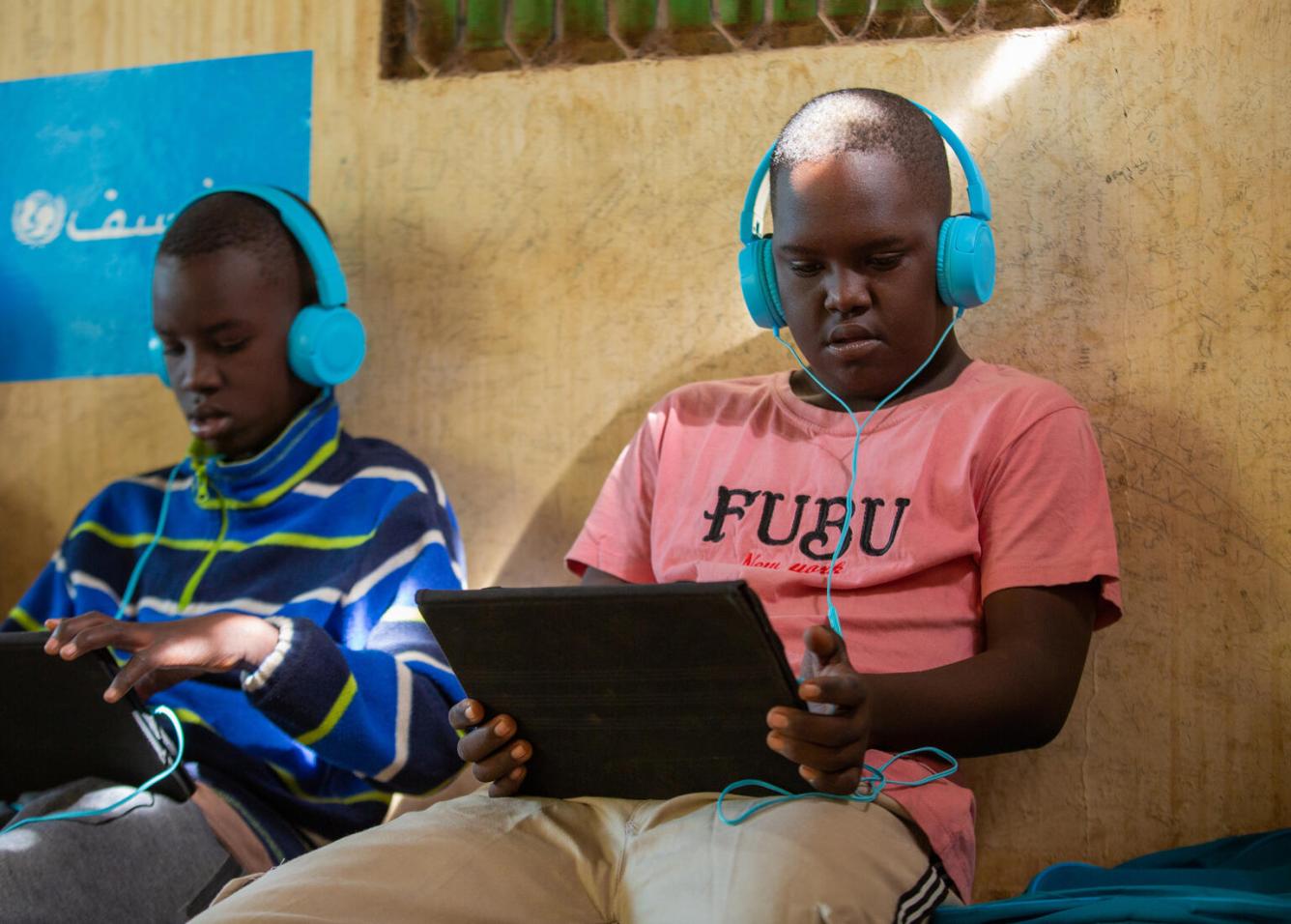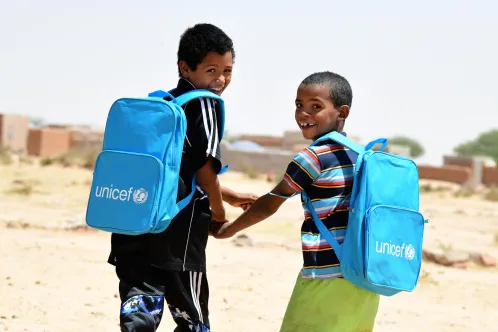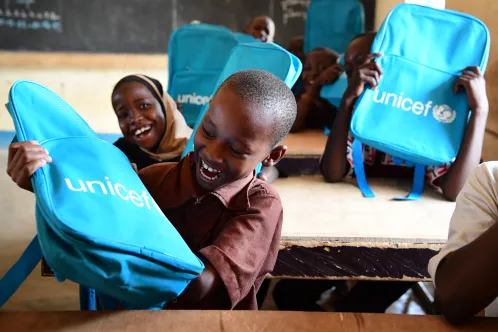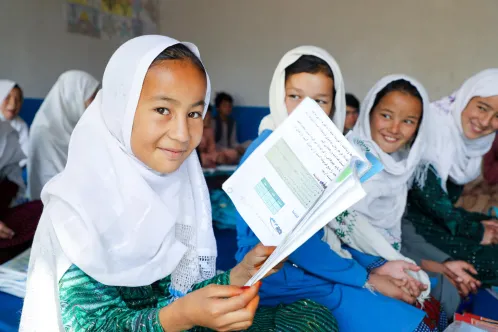Ensuring children have access to education during emergencies
During crises, education services are often the first to be suspended and the last to be restored. UNICEF works to support and maintain access to education services in emergencies to ensure children can continue learning, including those who are out of school or at risk of dropping out due to conflict and crises.
Education is a lifeline for children in crises
Schools protect children from physical dangers – including abuse, exploitation and recruitment into armed groups. They provide children with life-saving food, water, healthcare and hygiene supplies. And they offer mental health and psychosocial support so children can find stability and structure to help them cope with the trauma they experience every day.
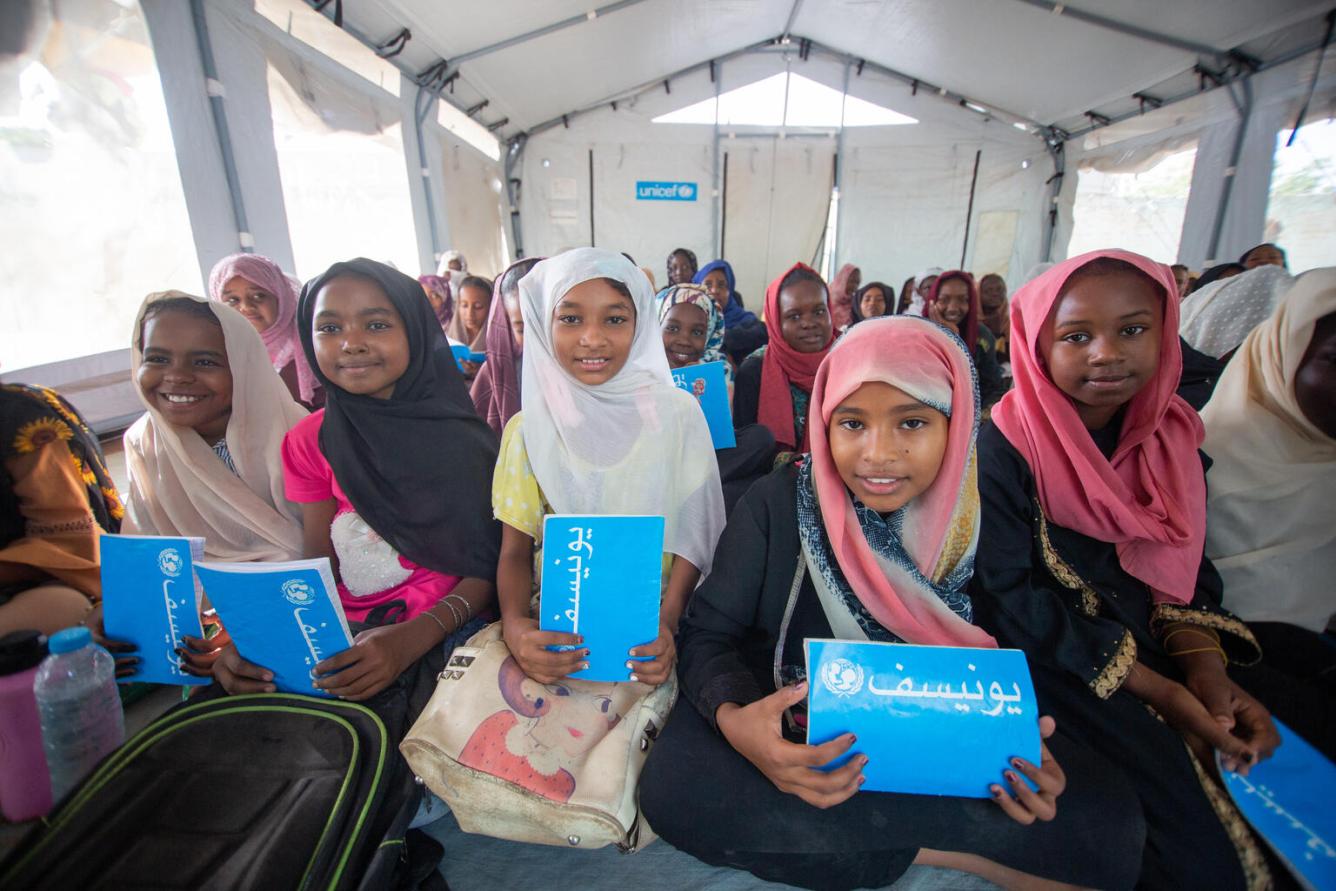
UNICEF’s work to deliver education in emergencies
UNICEF works to provide uninterrupted access to education for children affected by conflicts and crises – especially girls, children with disabilities, internally displaced children, refugees and migrants.
- We help children develop skills to cope with the trauma of crisis;
- We supply children with safe, child-friendly learning spaces that are equipped with water and sanitation facilities;
- We train teachers and supply learning materials to ensure the continuity of education in the event of an emergency.
Through all we do, we strongly advocate for a child’s right to education and a protective learning environment. We work to create partnerships at the national and global levels to safeguard learning for every child.
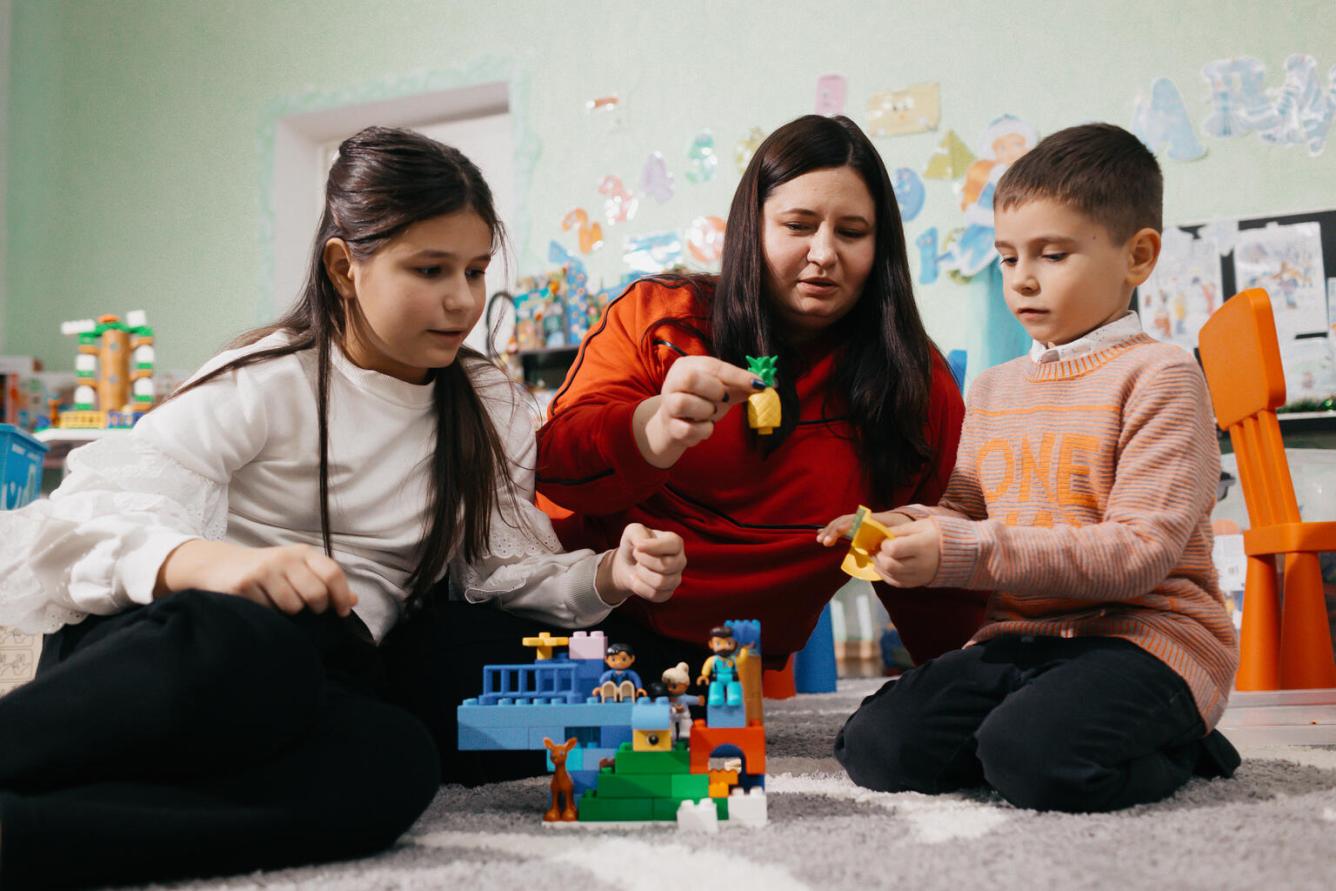
UNICEF Child-Friendly Spaces keep children learning during crises
A key component of UNICEF’s emergency response around the world are child-friendly spaces. These safe spaces allow children caught in crises to gather in a safe environment to learn, play and get back to being kids. It is also where children and families can go and get healthcare, counseling and other services, including protection from violence, exploitation and abuse.
Spilno Spots in Ukraine
Since the beginning of the war in Ukraine, UNICEF and partners have set up Spilno Child Spots as places where children can play, and where families can connect with essential services.
These child-friendly spots are set up across the country in dedicated tents or arranged spaces in the cities like at train or metro stations. From March 2022 to March 2023, more than 150 Spilno Spots across the country have welcomed over 775,000 visitors, of whom 480,000 were children.
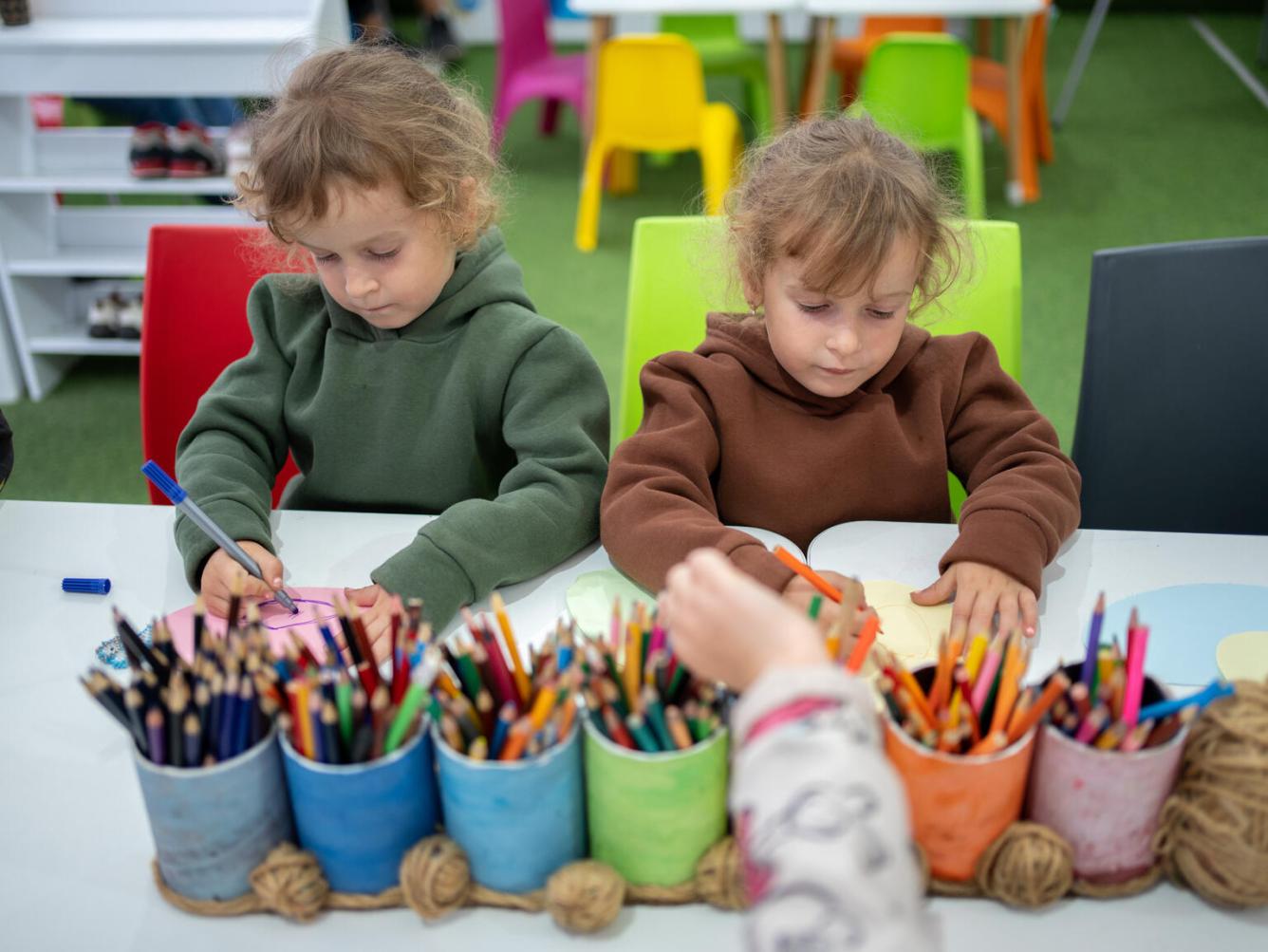
Safe learning spaces in Sudan
The ongoing war in Sudan has displaced millions, taking a heavy toll on children, especially those with disabilities. UNICEF is in Sudan to ensure children are not left behind by establishing inclusive safe learning spaces to support children on the move.
These spaces provide children with services including psychosocial support, mental health support, play, a health clinic, clean water and digital learning.
